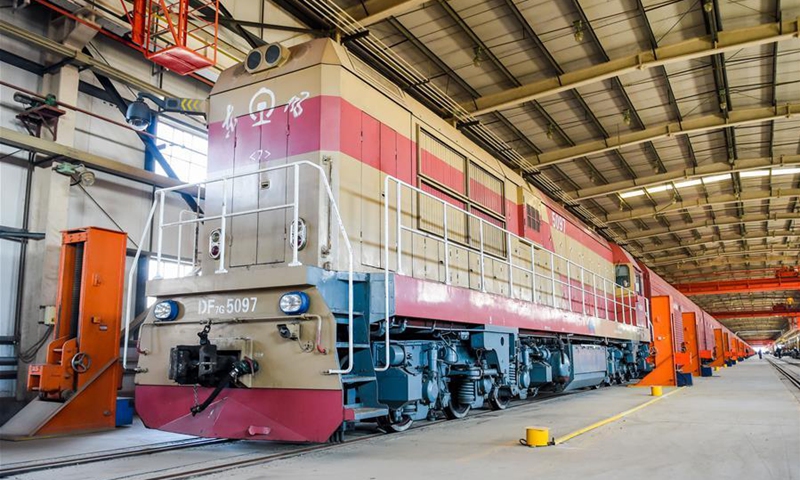
A border-crossing train loaded with vehicles enters the wheel replacement workshop at the Erenhot Port in north China's Inner Mongolia Autonomous Region, April 12, 2020. Photo: Xinhua
Mongolia has joined the Asia-Pacific Trade Agreement (APTA) and is expected to implement tariff concessions with member countries staring next year, allowing both Chinese and Mongolian companies and people to enjoy more benefits.
According to a statement by China's Ministry of Commerce on Monday, Mongolia will reduce tariffs on 366 items, including seafood products, vegetables, fruits, animal and vegetable oil, minerals, chemical products, woods, cotton yarn, machinery and other items. The average tariff reduction level is 24.2 percent.
In return, Mongolia can enjoy relevant tariff reduction policies by other member countries under the APTA, including China.
"Mongolia's joining will further push forward the regional integration of developing economies in the Asia-Pacific region, promote the Belt and Road Initiative and enhance the level of bilateral trade liberalization and facilitation," the ministry said.
For years, China has become Mongolia's largest trade partner and the second largest source of investment.
Last year, China-Mongolia trade value grew 2.1 percent year-on-year to $8.16 billion. China's investment to Mongolia grew 132 percent year-on-year in 2019 to $270 million.
The APTA is the first regional preferential trade pact that China joined. Its member countries include Bangladesh, India, South Korea, Laos, Sri Lanka and Mongolia.
So far, the pact has implemented four rounds of tariff reductions. Six member countries have reduced tariffs on more than 10,000 items with the average reduction of 33 percent.
